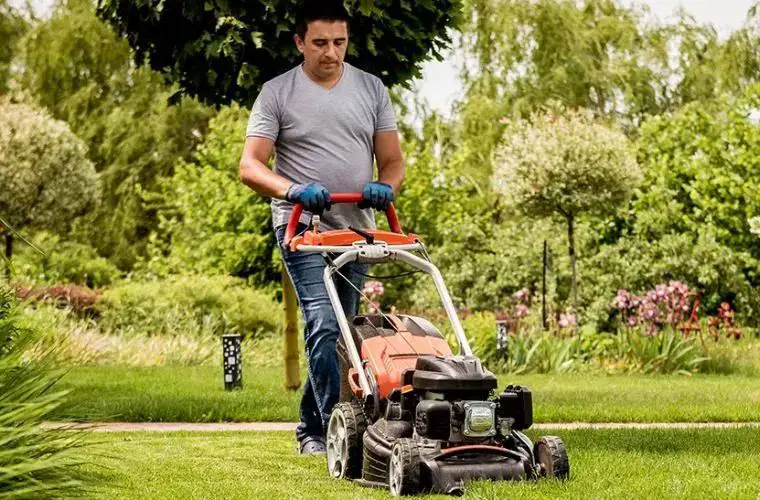Electric self-propelled lawn mowers have become increasingly popular in recent years as an alternative to gas-powered mowers. Self-propelled electric mowers have a motor that propels the mower forward without the user having to push it manually. This makes mowing larger yards much easier and faster. But are electric self-propelled mowers really worth the higher price tag compared to a standard push mower? There are pros and cons to consider when deciding between electric and gas self-propelled mowers.
Page Contents
Pros of Electric Self-Propelled Mowers
Environmentally Friendly
Electric mowers are much more environmentally friendly compared to gas mowers. Electric mowers produce no emissions while gas mowers generate air pollution from burning gasoline. Electric mowers are better for the environment and your health.
Lower Maintenance
Electric mowers have far fewer parts and need much less maintenance than gas mowers. There is no oil to change, air filters to replace, spark plugs to change, or carburetors to clean. The maintenance is typically just lubricating some parts and replacing the mower blades when needed.
Quieter Operation
Electric mowers operate much more quietly than loud, noisy gas engines. This makes mowing early in the morning or late evening less disruptive to your neighbors.
Less Vibration
The electric motors run smoother and with less vibration than gas engines. This reduces fatigue when mowing longer.
Lower Operating Costs
Electric mowers are estimated to cost 50-70% less to operate over their lifetime compared to gas mowers. There is no need to purchase gasoline and electricity prices are lower per hour of operation.
Cons of Electric Self-Propelled Mowers
Higher Upfront Cost
Electric self-propelled mowers typically cost quite a bit more than gas-powered models upfront. The battery and motor technology adds cost. But the total lifetime costs are lower.
Limited Range
Electric mowers run on battery power so they have a limited run time per charge. Typical batteries may last 30-60 minutes. This means you may need to stop and recharge when mowing larger yards. Newer models have extended range batteries.
Recharge Time
It takes 1-2 hours to fully recharge an electric mower battery. This downtime has to be factored in when mowing. Gas mowers can be instantly refueled and continue mowing.
Less Powerful
Electric motors provide sufficient power for mowing but may struggle with thicker grass or steep hills compared to more powerful gas engines. Power continues to improve with newer models though.
Factors to Consider
When deciding if an electric self-propelled mower is right for you, here are some factors to take into account:
Yard Size
Consider the size of your yard and how long it takes you to mow it with a push mower. Electric mowers work best for small to mid-sized yards up to half an acre. Batteries may not last for larger yards.
Grass Type
If you have thick, fast growing grass then the more power of a gas mower may be needed. Electric mowers do fine for average density grass.
Terrain
Very hilly or uneven terrain is difficult for electric mowers. The self-propel motors work hard going uphill. Level or moderately hilly yards are best for electric.
Features Needed
Consider if you need features like mulching, bagging, or being able to discharge grass clippings. Make sure your electric mower choice can handle your required features.
Budget
Electric mowers range from $300 on the low end to $1000+ for pro-grade models. Make sure it fits your budget constraints. The long-term savings will offset the initial costs.
Top Electric Self-Propelled Mowers
Here is a comparison of some of the best electric self-propelled lawn mowers on the market:
| Mower | Motor Power | Cutting Width | Battery Runtime | Key Features |
|---|---|---|---|---|
| EGO Power+ 21″ | 560W Brushless | 21″ | 45 min (7.5 Ah battery) | Dual blade, LED headlights, weather resistant |
| Ryobi 20″ Battery | Brushless | 20″ | 45 min (4.0 Ah battery) | Zone start, rear bag, mulch, or side discharge |
| Greenworks MO40L410 | Brushless | 21″ | Up to 60 min (4.0 Ah battery) | Smart cut technology, dual blades |
| Snapper XD 82V MAX | Brushless | 21″ | Up to 45 min (4.0 Ah battery) | Load sensing technology, steel mowing deck, LED headlights |
| DEWALT 20V MAX | Brushless | 20″ | Up to 40 min (5.0 Ah battery) | 3-in-1 mowing capability, ergonomic handles |
Comparison of Electric vs. Gas Self-Propelled Mowers
| Feature | Electric | Gas |
|---|---|---|
| Upfront cost | Higher | Lower |
| Engine power | Lower torque | Higher torque |
| Reliability | Fewer parts to fail | Spark plugs, filters need replacement |
| Noise | Quiet operation | Loud gas engine noise |
| Emissions | Zero emissions | Gasoline emits air pollution |
| Operating costs | 50-70% less than gas | Gas and oil costs |
Conclusion
Electric self-propelled mowers have compelling benefits compared to gas models for many homeowners. The higher upfront cost is offset by lower lifetime operating costs and environmental benefits. Electric mowers are ideal for small to medium yards up to half an acre with minimal hills and average grass thickness.
Key factors to evaluate are your yard terrain, required mowing features, and cutting width needed. Compare runtime, power, and features among the best electric self-propelled brands to choose the right mower for your needs. Going electric can be a great choice to save money and maintenance headaches in the long run.

